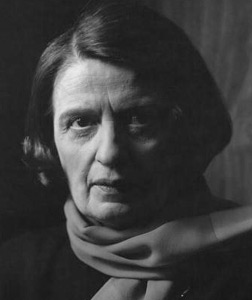Replies to post #85571 on Tornado Alley (PROG)
11/02/09 12:32 PM
11/03/09 1:12 PM

01/01/10 2:16 PM
The man who has perhaps done as much as anyone to bring the natural-foods movement from the crunchy fringe into the mainstream is also a vocal libertarian, an orthodox free-marketer, an admirer of Milton Friedman, Ronald Reagan, and Ayn Rand. In the 2008 Presidential election, he voted for Bob Barr—Ron Paul wasn’t on the ballot.
The right-wing hippie is a rare bird, and it’s fair to say that most of Whole Foods’ shoppers have trouble conceiving of it. They tend to be of a different stripe, politically and philosophically, and they were either oblivious or dimly aware of Mackey’s views, until the moment, this summer, when Mackey published an op-ed piece in the Wall Street Journal asserting that the government should not be in the business of providing health care. This was hardly a radical view, and yet in the gathering heat of the health-care debate the op-ed, virally distributed via the left-leaning blogs, raised a fury. In no time, liberals were organizing boycotts of Whole Foods. (Right-wingers staged retaliatory “buy-cotts.”) Mackey had thrown tinder on the long-smoldering suspicion, in some quarters, that he was a profiteer in do-gooder disguise, and that he, and therefore Whole Foods, was in some way insincere or even counterfeit. No one can say that he hasn’t brought it on himself.
In the early eighties, Mackey told a reporter, “The union is like having herpes. It doesn’t kill you, but it’s unpleasant and inconvenient, and it stops a lot of people from becoming your lover.” (That quote, to Mackey’s dismay, won’t go away, either.) His disdain for contemporary unionism is ideological, as well as self-serving. Like many who have come before, he says that it was only when he started a business—when he had to meet payroll and deal with government red tape—that his political and economic views, fed on readings of Friedman, Rand, and the Austrians, veered to the right. But there is also a psychological dimension. It derives in large part from a tendency, common among smart people, to presume that everyone in the world either does or should think as he does—to take for granted that people can (or want to) strike his patented balance of enlightenment and self-interest. It sometimes sounds as if he believed that, if every company had him at the helm, there would be no need for unions or health-care reform, and that therefore every company should have someone like him, and that therefore there should be no unions or health-care reform. In other words, because he runs a business a certain way, others will, can, and should, and so the safeguards that have evolved over the generations to protect against human venality—against, say, greedy, bullying bosses—are no longer necessary. The logic is as sound as the presumption is preposterous.
| Volume | |
| Day Range: | |
| Bid Price | |
| Ask Price | |
| Last Trade Time: |